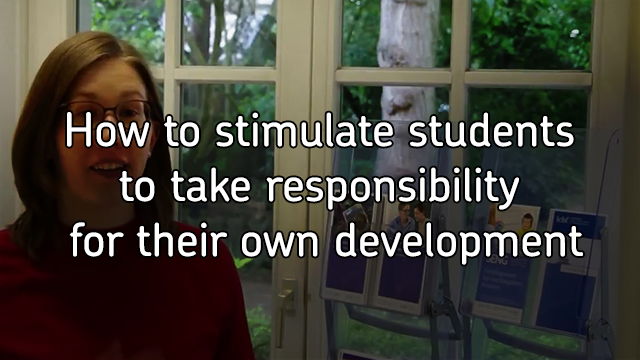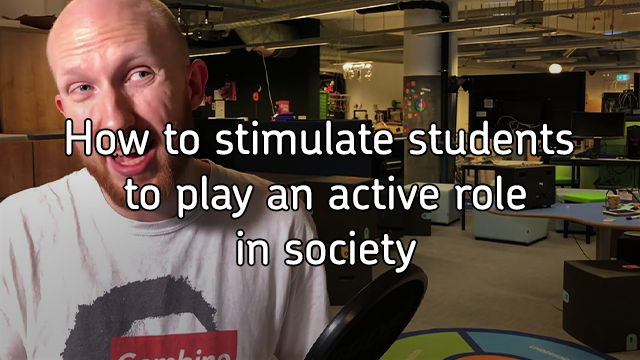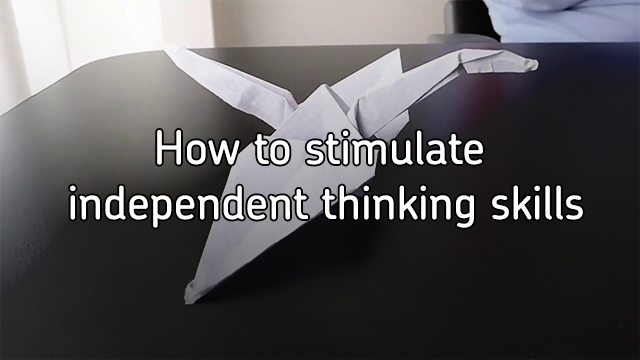When students take the lead
Gabija tells you about the journey she went through to accomplish a marketing group project. She describes the teachers’ guidance and the freedom of choice the students had. When students take the lead, magic happens.
You can enable subtitles by pressing the CC icon on the video
This video is for teachers who want to develop their students’ talents by experimenting with giving students more bounded freedom in completing a task. Working with open-ended assignments might improve your students’ self-regulating capacities, as well as have an effect on students’ motivation. Offering bounded freedom is an important teaching strategy within talent development education that also benefits teachers: you could feel an increased sense of satisfaction and psychological well-being.
The video addresses a real life example of bounded freedom. The student explains that they got the freedom to excel and meanwhile were able to enjoy the experience. They also got the appropriate guidance to be creative and accomplish more than they thought they were able to. As a teacher, you can see how fostering freedom can really inspire your students and, who knows, yourself as well.
Questions for reflection
1. How strict are the guidelines you use for assignments? Is there room for ‘bounded freedom’?
2. Can you think about ways to give students more responsibility in completing a certain task?
3. Do you feel that you can trust your students? What is needed for you to have (more) trust in your students/ How do you show that you trust your students?
University of Antwerp – Belgium
Stefanie Cornwell – Academic staff member
Fanny Neckebroeck – Quality assurance staff member
Karuna Adhikari – Pharmaceutical Science master student, Honors Alumni
Lisa Demoen – Biochemical and Biotechnology master student, Honors Alumni
Marleen Eyckmans – Quality assurance staff member
The video features:
Gabija Petrauskaité – Student Marketing Management, Hanze Hogeschool, Groningen
Freeman, 1999; Gentry, Rizza & Owen, 2002; Park & Oliver, 2009 in (Wolfensberger, 2012; p. 33).
Wolfensberger, M. V. C. (2012). Teaching for Excellence. Honors Pedagogies Revealed Waxmann Verlag. Retrieved from: http://dspace.library.uu.nl/bitstream/handle/1874/261033/wolfensberger.pdf?sequence=2
Reeve J, 2009: Why Teachers Adopt a Controlling Motivating Style Toward Students and How They Can Become More Autonomy Supportive. EDUCATIONAL PSYCHOLOGIST, 44(3), 159–175 Taylor & Francis Group – online DOI: 10.1080/00461520903028990
https://www.hanze.nl/eng/education/economy/international-business-school/programmes/bachelor/international-business-(4-year-programme)/study-choice/honours-talent-programme/honours-talent-programme




